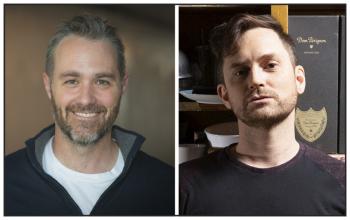Image Caption
Summary
Local Journalism Initiative Reporter
Windspeaker.com
Canada’s first-ever National Queer and Trans Playwriting Unit is now accepting 2SLGBTQ+ emerging and mid-career theatre-maker applicants interested in furthering their careers in the arts.
The unit consists of a 10-month, paid mentorship and development program, and was created to give five artists the opportunity to receive one-on-one mentorship as a new play of theirs goes into development.
The program provides $2,000 per month for the 10 months of the unit, as well as the opportunity for the selected artists to have recurring Zoom sessions connecting them with both individual and group mentorships from each of the program's participating theatres.
“For me, it's a no-brainer to get involved,” said Keith Barker, artistic director of Toronto’s Native Earth Performing Arts, one of the theatres involved in the project. “We were really excited with that opportunity, especially since we're very aware of the lack of queer and trans plays being produced on stages across Canada.”
In addition to Native Earth, the unit’s national members include Zee Zee Theatre (Vancouver), the frank Theatre (Vancouver), Gwaandak Theatre (Whitehorse), Theatre Outré (Lethbridge), Persephone Theatre (Saskatoon), Theatre Projects Manitoba (Winnipeg), Buddies in Bad Times Theatre (Toronto), Imago Theatre (Montreal), and Neptune Theatre (Halifax).
“The idea is this is a national program and so there are other organizations across the country involved,” Barker said. “And so if there's someone in a smaller or rural company and they only have a certain budget, if they can't necessarily produce the piece, maybe they can partner with one of us and produce the piece somewhere else and so that they are part of this kind of cross country (network).”
Applications for the program are due by July 5, with the successful candidates to be contacted by September. The program will take place the year following, with plays developed to be performed in September 2023.
Applications are being coordinated through Zee Zee Theatre's website at https://zeezeetheatre.ca/call-for-submissions-national-queer-trans-playwriting-unit/
Barker is hoping that his company can play a major role in the development of the selected artists.
“If you look at the history of Native Earth, a lot of the early work and a lot of the foundation of the company is built on queer and trans artists who created the company. Some of the most memorable work in the history of Native Earth comes from those voices,” Barker said. “It's such a rare company. If you look across the country, there is no real company like an Indigenous company that's been around for almost 40 years like this.”
Barker was very appreciative of being asked to be part of the national unit.
“I felt really grateful that they thought about us and wanted us to be part of the companies that are stepping forward to build something, try something new for a model for play creation and dissemination,” Barker said. “If you look at the body of work of Indigenous playwrights and artists that are creating work, so many of them will come through the doors of Native Earth.”
The program was created when Zee Zee Theatre noticed a gap existing in the Canadian theatre ecosystem of 2SLGBTQ+ creators, including Indigenous creators.
“They are a vital part of the social fabric. Their story belongs on stage just as much as anybody else's,” Barker said. “Oftentimes you come into spaces of mainstream or white-dominant spaces, where you didn't necessarily feel safe or artists didn't feel comfortable or didn't feel like it didn't feel welcome in the past. Lots of theatres are doing their best to try and change that.”
Growing up in Northwestern Ontario as a member of the Métis Nation, Barker said art didn’t always feel like a viable career path.
“I remember there was just a lack of art, like the idea that someone can make a living as an artist. It was just so beyond my comprehension and understanding,” he said.
Barker said that programs like this national unit are important to help contribute to arts funding across the country.
“Sometimes, artists get overlooked about the impact we have,” Barker said. “Because at the end of the day, when people are done doing their job, [art] is the thing they consume.” He said the work on TV and in movies starts with the playwrights. It starts with young actors in arts programs, as visual artists. “They draw in art class, and then they end up in animation at a massive studio in LA or something. You just don't see the trajectory and the impact the arts has.”
Cameron Mackenzie, Zee Zee Theatre’s artistic and executive director, echoed Barker’s statements.
“Art has the power to elevate voices and ideas that can change the world. Now, more than ever, the arts sector needs to prioritize those who have been systematically left out of the conversation,” Mackenzie said.
“The impacts of this project will be far reaching and numerous: For the playwrights, it offers growth, stability and a national platform for their voice and stories to be heard. For the consortium companies, it creates a new body of work and connects them with vital queer and trans communities. For our sector as a whole, it offers new representation and reflection in ways that are meaningful and non-tokenizing.”
Local Journalism Initiative Reporters are supported by a financial contribution made by the Government of Canada.

